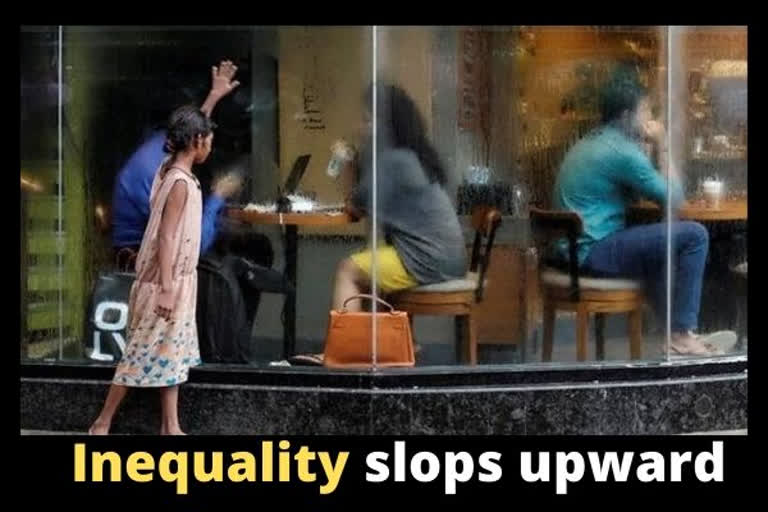Hyderabad: Although it seems that the world progresses on the growth trajectory, inequalities and their huge gaps spreading elsewhere are throwing new challenges.
Human Development Index focuses on such inequalities posing threat to the worldly nations targeting to reach inclusive growth by 2030.
Human Development Index Director clarified in last March that an efficient policy draft can be formulated only when the changing trends of inequalities based on transformation phase of social, financial and environmental changes are understood across the world.
The Director announced to unveil another angle of human development process thorough study focussing on to withstand unexpected financial and environmental issues and by knowing about education, health, information technology and financial disparities.
In that context, the fresh report discloses the root causes of India's predicaments of lagging behind as low and middle-income nation for decades.
India occupies 129 position out of 189 nations in human development Index by improving its position compared to last year. Norway, Switzerland and Ireland clinched first, second and third positions, respectively, in achieving average progress in three key factors of human development such as lifespan, education and per capita income.
India's neighbours like Sri Lanka (71) and China (85) shown improved performance with Bhutan (134), Bangladesh (135), Nepal (147) and Pakistan (152) showing downtrends.
Though India surpassed South Asia which achieved 46 percent growth from 1990-2018, inequalities and bad records effect the progress results that centre and state governments cannot ignore at field level.
The need of the hour is to achieve social justice and remove inequalities. Fight against poverty and unemployment to ensure economic development of the people is the immediate aim. Prime Minister Jawahar Lal Nehru had directed about this during the preparation of the first five-year plan.
Although India sees 12 five year-plans and 14 Finance Commissions for decades, policy cultivation and financial support results reflect in the cuffs of inequalities that pull down country's progress.
Since 2005, India per capita has surpassed, GDP which has been doubled while the number of poorest of the poor decreased by 27 crores.
Interestingly, at the same time, a study reveals that entire world has a staggering number of 130 poorest of the poor people and India contributes to 28 percent of it.
In the middle of 2000-18, it was revealed that income growth rate of 40 percent lower class people was less compared to the average income growth of people of the country. Due to daunting financial conditions for generations, the poor class in the country has been facing delivery time problems including some fatalities and deprived of better health services, education and opportunities.
As a result, schemes aimed to improve their living conditions have been proved futile as it was just like carrying a potful of water with a hole. Also, there is no good result and improvement in the lives of the poor with direct benefit transfer scheme.
Despite several such schemes, developing nation like India is able to cross only four percent of below poverty line. It is time for politicians to focus on an efficient plan to reach an
integrated human development target by stopping slogans of poverty eradication which are mere tools for corrupt politics.
There is no use of spending huge funds in the name of schemes without going deep into actual problem. Good results can be achieved by moving forward by an analysis of
the actual needs of target groups. This was proved in the experiments of Nobel laureate Abhijit Sen. Also, confirmation of inequalities was done in the same way as part of human development analysis.
A report says India occupies 122nd position in 162 countries with regard to discrimination among women which is spread across the world,in terms of social, financial and political fields. While in South Asia, 17.1 percent MLAs are women, India has only 11.7 percent women parliamentarians.
Similarly, only 39 percent girls are studying primary and upper classes, just 27.2 percent women are coming out of homes to work as labourers.
Females have lion share with regard to those facing malnutrition problem and disparity in height and weight as per BMI norms. There is no dispute in saying that for many generations, unabated social discrimination is spiking human development Index.
Though there is an improvement in giving primary education, inequalities continue to grow in providing quality education in higher studies.
True development sans inequalities can take wings only when governments and civil society work together with commitment towards equal justice principles of the Constitution.
ALSO READ: How the Internet ban and curfew backfired in Assam



